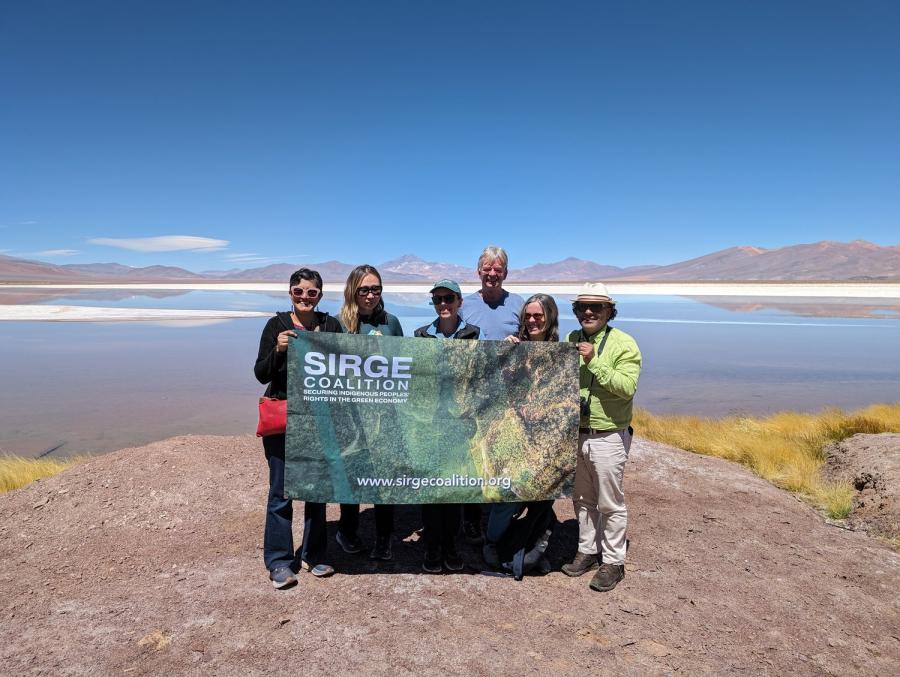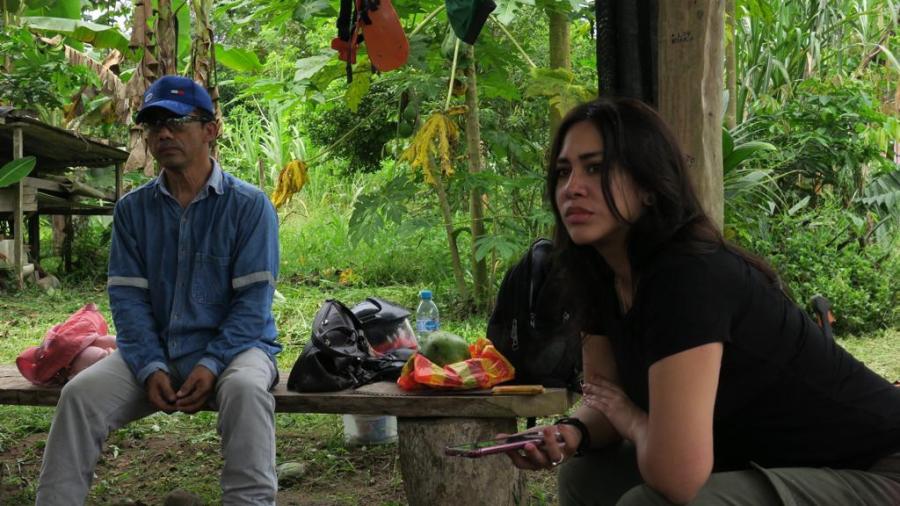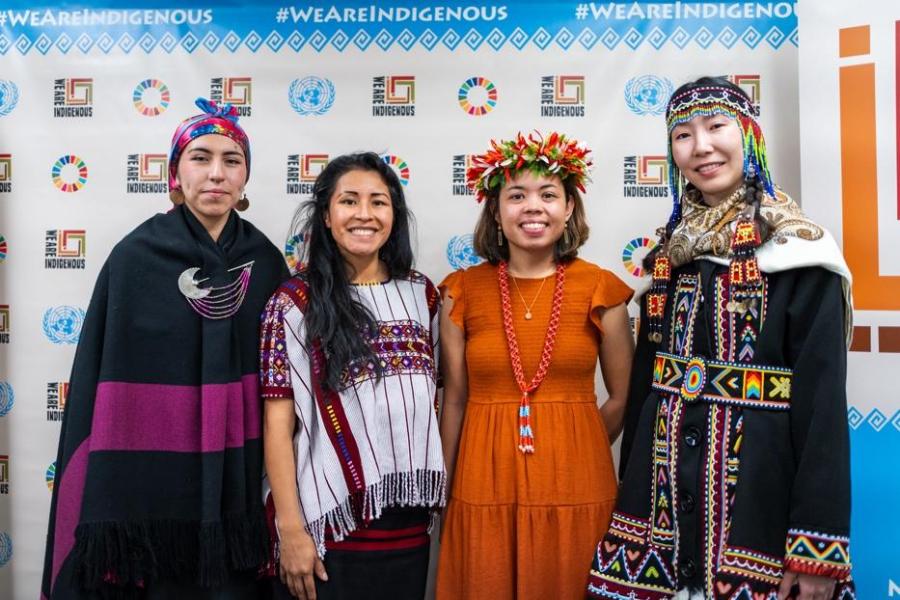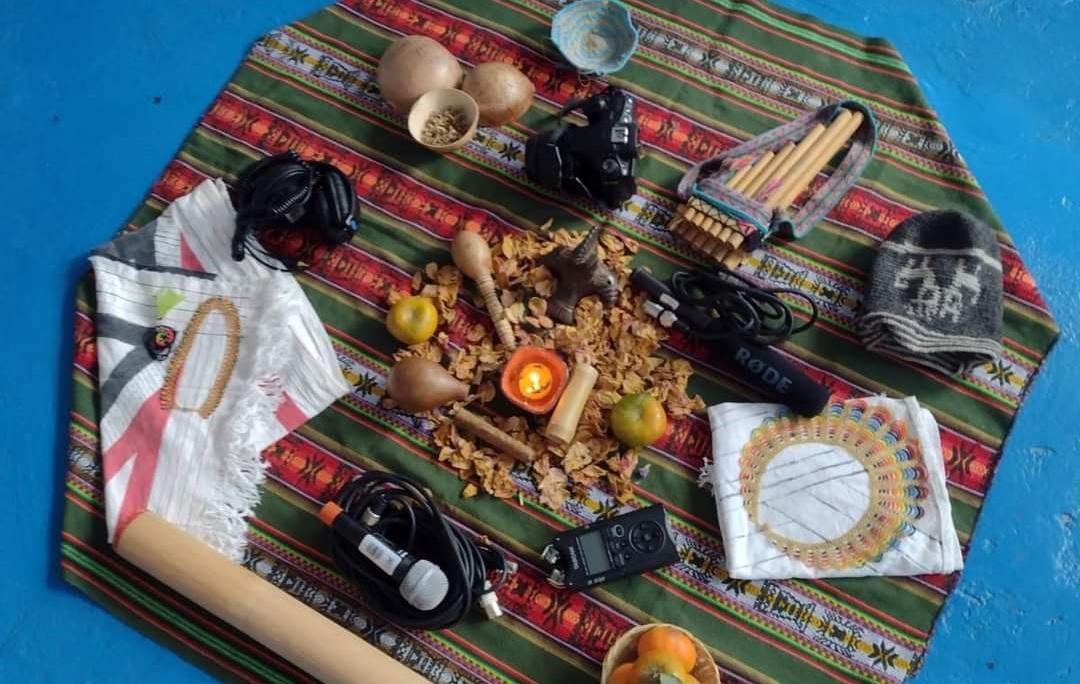
By Nati Garcia (Maya Mam, CS Staff)
The Global Investigative Journalism Conference (GIJC) is the world’s largest international gathering of investigative reporters since 2001. This year’s conference was held virtually for the first time, on November 1-5, 2021. Over 1,600 journalists from 144 countries attended. Sessions ranged from data journalism; investigation of pressing issues like climate change, mapping, and inequality; investigative podcasts; online research tips; data collection tools; and investigation by Indigenous journalists; and offered diverse panels from around the globe.
It was an opportunity to bring together journalists to discuss, exchange, and share experiences and ideas to collaborate in a demanding field where facts, reporting, investigation can become exhausting. Finding a story can be a challenge, the idea, formation, analysis, to become a story requires many layers of peeling to reach the core in particular with investigative reporting.
Before finding a story there is a question to ask, what exactly is the role of a journalist? There is the assumption that journalists are one of the pillars to ensure a democratic society and shape the consciousness of civilians, providing information and evidence so that what is being reported comes from a place of truth. However, one wonders whose truth? Can there be space for multiple truths?
The responsibility of a journalist is daunting, to provide the clearest, most accurate information for decisions that impact individual lives, communities, government, and society. However, for Indigenous Peoples, much of the information that has been eluded since colonial contact are truths that have been hidden to protect the colonial image. The responsibility of a journalist is to provide accurate truths for people to be able to make informed decisions, therefore, it is critical to report the dark truths of colonial systems and break down the hierarchy of truths.
As a journalist, it is vital to reflect on the values of journalism and decolonize one's approach to reporting. The media influences public opinion. For too long, the public has received misleading information about Indigenous Peoples who have been portrayed in discriminatory, racist, or stereotypical lights. It is time to shift that narrative that uplifts colonial exploitation. Words are powerful and can be harmful when writing a story about Indigenous Peoples and as non-Indigenous journalists, people need to be especially cautious and conscious of word choice as well as make sure Indigenous Peoples serve as collaborators or reviewers. Accountability is important in the work of journalism and being aware not to extract and sensationalize suffering of Indigenous stories but to contextualize solutions is fundamental.
Indigenous Peoples have utilized mechanisms since time immemorial to document Indigenous cultures. This sophistication of intergenerational oral transmission, the ceremonial ways in connecting with the unseen, are known today as storytelling. There is power in storytelling and speaking the truth in being a witness to the transmission of stories. It is an ancient tradition practiced by Indigenous Peoples around the world.
The GIJC offered a panel on Indigenous Investigation that featured Indigenous journalists Tristan Ahtone (Kiowa and Mikmaw), Lorena Allam (Gamilaraay and Yuwalaraay), and Trina Roache (Glooscap First Nation). They highlighted the importance of reporting on colonial systemic issues affecting Indigenous communities and structural injustice that impact Indigenous sovereignty around the globe. The panelists spoke from their own experiences being Indigenous journalists from three different regions in Canada, the United States, and Australia and shared about their efforts of writing stories of Indigenous strength and resilience.

Trina Roache is an award-winning video journalist who has covered stories in the unceded territory of the Mi’kmaq, Wolostoqey, and Pestomuhkati Nations, from politics to policing to land protection. Her work has earned regional and national awards from the Atlantic Journalism Awards, Amnesty International Canada, and the Canadian Association of Journalists. Roache brings a Mi’kmaw perspective and years of experience in visual storytelling. Roache spoke on the importance of providing accurate context, understanding what happened and why it is relevant today when writing a story. She emphasized the value of investigative research of archives, historical records, and church records of a colonial country, where she shared the challenges in navigating this vast resource that may not always be available to the public. A key message Roache shared was on the responsibility "to be a storyteller not a story taker," to work alongside Indigenous Peoples building relationships stating it is about writing "with us not about us."
Roache spoke about Indigenous stories in Canada and residential schools, and the countless hours of digging into archives and historical records seeking cues for uncovering valuable information to accurately inform the public and inviting the public to understand the histories of Indigenous Peoples. "Investigations for me have looked like police accountability, holding the government accountable, to win an award for human rights reporting I think is indicative of the ongoing impact of colonialism. There is a lot of work to do... Indigenous voices need to have weight and we need to legitimize these stories. The colonial records really reveal historic and ongoing policy of assimilation and cultural genocide."
Lorena Allam is a multiple Walkley award-winner and has been a journalist and broadcaster for over 30 years. Allam is the Indigenous Affairs Editor for The Guardian Australia. Allam spoke about the ongoing impacts of colonization sharing about the Deaths Inside Project that tracks the deaths in custody in Australia. The project began in 2018, and has collected data on the deaths of Indigenous people in custody since 1991. Her findings were concerning as many records of deaths could not be located. She shared, "When an Indigenous person dies in custody it is up to the media to ask questions," stressing the importance of a journalist to advocate for justice and telling the truth to the public, and being trauma-informed to uphold accountability to colonial states.
Tristan Ahtone is Editor-at-large at Grist and previously served as Editor-in-chief at The Texas Observer and Indigenous Affairs Editor at High Country News and is Co-founder of the Indigenous Investigative Collective. He shared three stories published by the Collective: “Anti-Indigenous Handbook,” “A Broken System,” a publication on how many Indigenous people have died from COVID-19 who have not been accounted for in statistics and an investigation of Tribal fraud. Ahtone states, “There is no ethical investigative reporting about Indigenous communities without an Indigenous person writing, reporting, photographing, or editing that story.”
History and context are vital when investigating in Indigenous stories. Ahtone states,"What separates Indigenous journalism from other forms is its reason for existence and its place it holds outside of and often in opposition to institutions that mainstream journalists are tied to." Making Indigenous journalism fundamentally different because it works towards supporting Indigenous sovereignty and self-determination with ideas at odds against colonial systems. Ahtone mentions how it is important to understand if one is producing stories for Indigenous people or about Indigenous people. Newsrooms lack support in training Indigenous people to write, which is a serious problem in the profession and requires the implementation of decolonization approaches. Ahorone ends with a powerful note, "you cannot report on Indigenous communities if you do not have Indigenous representation in your newsroom, to report accurately."
Newspapers and newsrooms have converged Indigenous Peoples into one heavily stereotyped box, influenced by colonial ideology that continues to resonate today and the panelist spoke to this. Indigenous communities comprise 476.6 million people in 90 countries — 6.2 percent of the world's population — and are custodians of 80 percent of the world's biodiversity. At the same time, these communities are often under siege by dominant cultures, their resources stolen, and their people subjected to discrimination and abuse. For this reason, it is critical to support Indigenous leadership and voices in the field of journalism and community media to amplify the resilience and self-determination of Indigenous sovereignty.
With years of experience coordinating capacity building efforts through workshops, conferences, radio station exchanges, facilitating the development of regional networks, and supporting advocacy efforts to legalize and democratize community media, Cultural Survival elevates the experience, assets, and expertise of the communities that we partner with through our Indigenous Community Media Fund. We believe that it is crucial to listen and respond to the self-determined needs of the communities in order to provide support that is sustainable and most importantly, pertinent to the needs of the community. Indigenous youth are the future of their communities and developing youth leadership is an integral part of ensuring communities’ well being.
The Cultural Survival Indigenous Community Media Youth Fellowship is an opportunity to assist fellows to represent the voices of their communities and bring awareness of local issues to global conversations through their proposed projects, all the while strengthening their cultural identities and leadership. At the GIJC conference, Cultural Survival supported a fellow in participating.
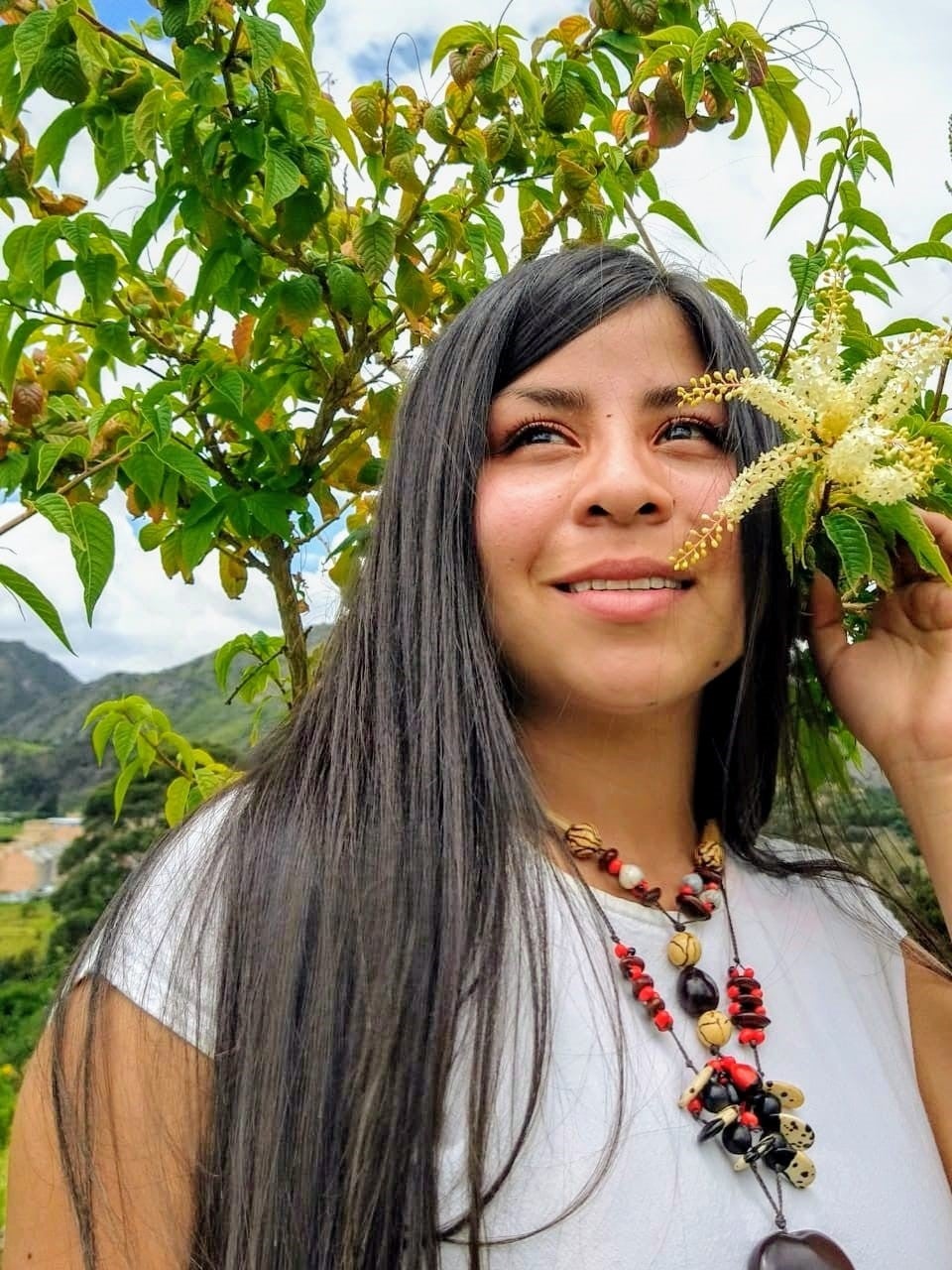
Andrea Katerine Yate Erazo (Pijao) is from Cabildo Ambiká, Bogotá, Colombia. She is a leader interested in strengthening and supporting her own educational journey. She is part of the Abole Guipas y Guambitos Youth Council of her community. Currently, she is studying Economics at the National University of Colombia, and is part of UN-Gen, a student group that seeks to strengthen and recognize gender diversity in all its expressions at the National University of Colombia in Bogotá, as well as a member of the Women's Word Circle-MLK.
Yate Erazo shares her reflections from the GIJC conference: “Although journalism is not one of the areas that I am involved in personally, I found that this conference can serve as a tool for knowledge, analysis, and investigation of situations. I believe that there is something very important that unites all of us with the objective of investigating and finding the best way to use audiovisual tools. We all seek to publicize different situations that are important to us, especially from cultural aspects as Indigenous Peoples.
“Journalism and research are fundamental factors for land defense and for keeping our Indigenous cultures strong. These are the tools that I found most beneficial for my personal experience as an Indigenous woman, communicator of knowledge, and messenger of ancestral words to Indigenous communities. Thanks to this conference, I found the need to communicate is something that can be used in different ways. Storytelling has allowed knowledge to be passed down through generations and enabled our histories to survive. I am very grateful for this invitation and I share my experience about this important opportunity.”
There is still much work to be done, however, in supporting Indigenous youth in strengthening their abilities in community media to become storytellers and in creating their own content paves aspiration in shifting the narratives in colonial systems. They educate the public, spread awareness, and showcase the resiliency and beauty of Indigenous people. At Cultural Survival, we continue to provide fellowships to Indigenous youth such as Yate Erazo to lead the way in decolonizing and promoting self-determination for their Peoples and future generations.
